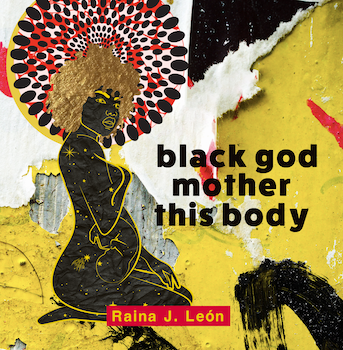I’ve struggled with finding belonging my entire life. I grew up 30 minutes outside of Pittsburgh, Pennsylvania and spent most of my teenage years jumping from O’Hara Township, a white suburb, to the Hill District, a bustling Black area, and to Puerto Rico, where some of my family resides. In my school district, I was exposed largely to white writers and I searched for my heritage on my own in books. As a teenager, I fell in love with James Baldwin, Toni Morrison, Octavia Butler, Langston Hughes, Zora Neale Huston, Heidi W. Durrow and Edwidge Danticat. When I read their words, I felt like my Black experiences were valid, vibrant, and alive. Writing gave me a space where I could be myself, where I could bring my bifurcated experiences together. When I read books by Black authors, it made me feel like someday I could write a book.
I found that I was hungry for representation everywhere I went. I’m the daughter of Black American father and Puerto Rican mother, and I wondered if there were any writers out there like me, who were both Black and Latina. After finding Mayra Santos-Febres on a bookshelf in San Juan, and after researching more about Afro-Latine literature and getting to know wonderful Black Latine writers all over the country, I felt like I had found a kind of literary home.
In my short story collection When Trying to Return Home, my main characters, Black Americans and Afro Latines, struggle with the feeling of belonging, on the search for home and freedom whether it’s in Puerto Rico or Miami.
Our voices should be heard and Afro-Latinas deserve a spot in the literary canon. The following list includes amazing Afro-Latina writers whose work has given me strength, validity and power. These women are truth-tellers, they say the unsayable, they capture what it’s like to inhabit multiple identities. I hope you buy their work.
Ivelisse Rodriguez, author of the story collection Love War Stories
Dr. Ivelisse Rodriguez’s incredible book Love War Stories chronicles the stories of Puerto Rican women grappling with desire, personal will and the need to find freedom on their own terms: “Love between two people is up close, disheveled – a mélange of past, present, future love and acrimony…” In Rodriguez’s short story “El Qué Dirán” a young woman named Noelia prepares for her quinceañera while wrestling with her relationship with her aunt Lola who is lovelorn over her absent husband Carlos. The stunning “The Belindas” depicts the protagonist Belinda reinventing herself after a breakup with her ex. These stories will move you.
Jasminne Mendez, author of the hybrid collection Night-Blooming Jasmin(n)e
Jasminne Mendez is a Houston-based, Dominican-American poet and writer, her writing addresses the body, Afro-Dominican identity, womanhood and the power of storytelling. In her personal essay and poetry collection Night-Blooming Jasmin(n)e, Mendez explores her struggle with chronic illness and infertility after being diagnosed with scleroderma and lupus as a young woman. In her poem, “To El Hombre Dominicano Who Told Me It Was Not My Place to Write about Dominican/Haitian Relations,” she writes that “my body is a midnight church” and she elevates the female experience by saying “Again, I tried to justify that my poetry was—for women, amas de casa bearing rifles & marching in skirts women.”
Mayra Santos-Febres, author of the novels Sirena Selena and Huracanada
Mayra Santos-Febres’s work is fierce, immersive and captures Blackness, identity, love, nation and the many sides of Puerto Rico exquisitely. She’s also a prolific multi-genre writer who has written poetry and fiction. In her book Sirena Selena, an impoverished, majestic boy in drag entices Hugo Graubel, a wealthy investor and they engage in a long affair. In her Spanish language book Huracanada, Santos-Febres follows a chorus of voices, the survivors of Hurricane Irma and Maria. In this book, she empowers and complicates the story of an island trying to find its core in the aftermath of destruction.
Yesenia Montilla, author of the poetry collection The Pink Box and Muse Found in a Colonized Body
Yesenia Montilla’s poetry is searing and gut-wrenching. Her collection The Pink Box examines dreams and memory beautifully, and poems like “Maps” in Muse Found in a Colonized Body explore the body and the borders we attempt to traverse, the poem aspiring to be a “meditation on immigration and on dreaming of a borderless world.” Her wide-ranging collections discuss the commodification of art made by female artists, sexual desire, and living as an Afro Caribbean woman in New York City.
Amina Gautier, author of the story collections The Loss of All Lost Thing and Now We Will Be Happy
Amina Gautier captures relationships in flux with stunning detail and emotional acuity. Her short story collection The Loss of All Lost Thing, winner of numerous awards, is about loss, grief and the vulnerability of pursuing human connection. In “A Cup of My Time,” a pregnant woman is forced to choose which of her unborn twins will survive. “Lost and Found,” one of the most heart-wrenching stories in the collection, is told from the perspective of a young boy who has been kidnapped. In her story “Now We Will Be Happy” from her excellent collection Now We Will Be Happy, cooking becomes an extended metaphor for fraught relationships, because tostones “make no excuses.”

Raina León, author of the poetry collection black god mother this body
The founding editor of The Acentos Review, an online quarterly that promotes Latine writing, Dr. Raina León is a multi-genre writer whose work is lush and encompassing. Her book black god mother this body addresses topics such as loss, what it means to “mother”, healing and the body. It also captures the nature of performing womanhood: “i perform that I have it together/i perform control and joviality/i perform prayerful poise/what are you performing/when will the real rumble free?”
Elizabeth Acevedo, author of the novel-in-verse The Poet X
Elizabeth Acevedo will draw you in and make you feel as if your humanity is represented. She’s a poet and a novelist, two of her books are novels-in-verse. Her book The Poet X, which won the National Book Award for Young People’s Literature, is about a high school student named Xiomara who attempts to navigate a complex relationship with her mother, budding romance and slam poetry. Xiomara learns that “There is power in the word.”
Ariana Brown, author of the poetry collections We Are Owed. and Sana Sana
Ariana Brown’s work lifts spirits and speaks truth to power. The author of the poetry collections We Are Owed. and Sana Sana, the Houston-based scribe writes about her queer Black Mexican American experience with strength and love. In “Dear White Girls in My Spanish Class,”Brown says “Let me be clear. Spanish was given to my people/at the end of a sword, forced in our throats gory, /sharpened under the colonizer’s constant eye./Each rolled r is a red wet fingerprint pointing me back/to this. Spanish is not my native tongue. English isn’t either./The languages I speak are bursting with blood, but they are all I have.”
Dahlma Llanos-Figueroa, author of the novels Daughters of Stone and A Woman of Endurance
Dahlma Llanos-Figueroa manipulates time and roiling emotion effortlessly. She’s the author of the historical novels Daughters of Stone and A Woman of Endurance, which both show Puerto Rican Black women grappling with their environment. Daughters of Stone is about Fela, a talented Afro-Puerto Rican woman who overcomes slavery and who creates a lineage for her children.. A Woman of Endurance follows Pola, who is beaten by the oppression heavy in 19th-century Puerto Rico but survives and thrives. Her books brilliantly center the Afro-Boricua experience and as Llanos-Figueroa says in Daughters of Stone, “We all have stories. Sometimes the pain lies so heavily inside us that it can only be whispered.”
Jaquira Díaz, author of the novel Ordinary Girls
Jaquira Díaz is a powerhouse. Puerto Rico-born Díaz writes about the triumphs and perils of girlhood with sweeping, lyrical and engaging prose in her memoir Ordinary Girls. Her book follows her coming-of-age in Puerto Rico and Miami with gorgeous detail and wrenching beauty: “We were girls, but we’d spend the rest of our days together if we could. Until one day we realized that without meaning to, we grew up, grew apart, broke each other’s hearts.” Her works discuss Puerto Rico and Miami with gorgeous detail and wrenching beauty.
The post 10 Afro-Latina Writers You Should Read Right Now appeared first on Electric Literature.









